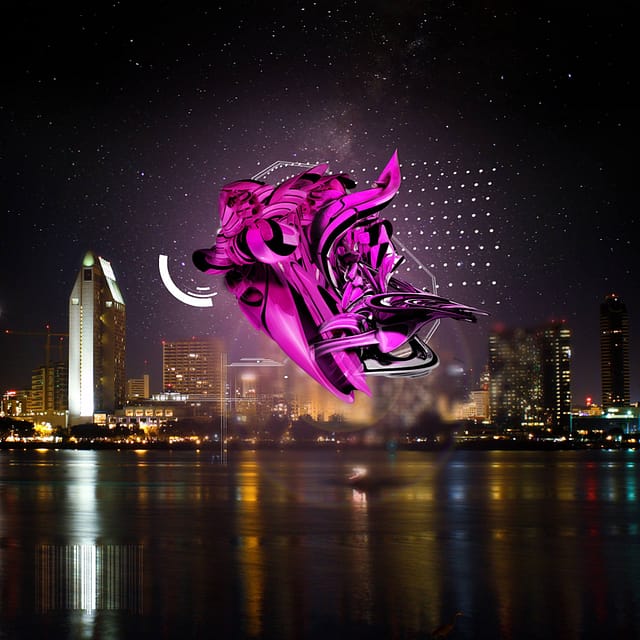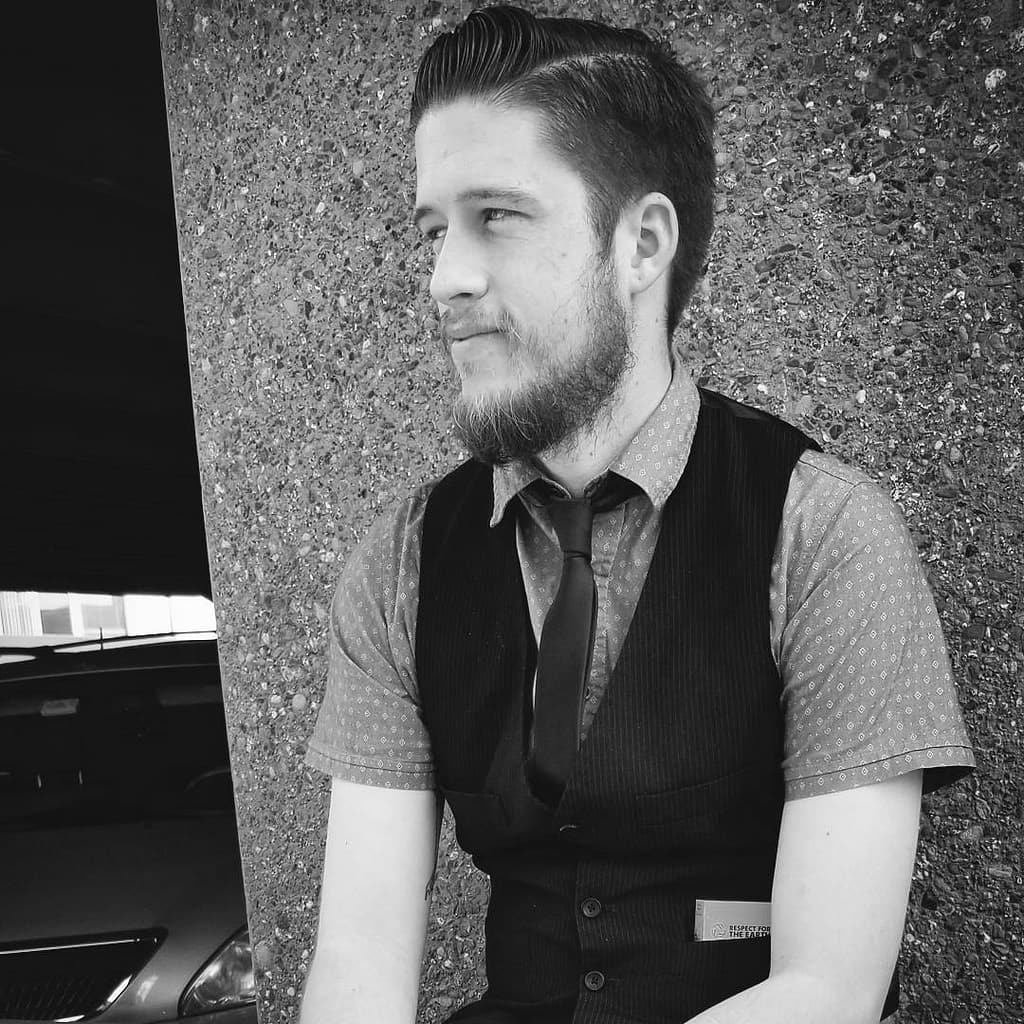
How Can I See Myself as Queer if the Self Is an Illusion?
“Since the ego is a derived sense of self, it needs to identify with external things… NONE OF THESE IS YOU.”
The Power of Now, Echart Tolle
My spiritual teachers are unanimous: there is no “self.”
There is no homunculus; no discrete but spectral pilot sitting behind your eyeballs and driving it’s flesh prison around. Your body, habits, and thoughts have continuity the same way the Ship of Theseus does: copies are continuously supplanting every cell, memory, and idea.
Almost every cell dies and is replaced in less-than seven-year intervals. The emotional and mental context of recall fries your memories into increasingly imperfect copies. Thoughts never last more than a few seconds—are you really confident your brain’s greatest hits are identical each time they arise?
Spiritual teachers confidently proclaim immutable, essential, separate selves are out and a collective Source that is common to all awareness is a better model. We aren’t individuals; we’re one thing, inseparable.
Hermeticists call this The All. Quantum physicists call it the Unified Field. Different cultures and societies have known it as the Universe, Source, the Divine, and, of course, God.
But if there is no individual—no “self”—does that mean there is no “true self?” When we talk about authentic self-expression, aren’t we talking about our outsides reflecting what that illusory inner pilot feels?
That’s where I started last night. I finished identifying as non-binary.
“Nothing of me is original, I am the combined effort of every person I’ve ever met.”
Invisible Monsters, Chuck Palahniuk
Imagine a brain as a smartphone connected to WiFi.
Now, imagine you’re a Neanderthal engineer—puffed up with successfully inventing the sling and stone, magically transported to the present day and at a loss for how that strange box works. Got it? Good.
If you’re a clever and dextrous cave-intellectual, after overcoming the pants-shitting shock of time traveling and being handed a magic rock, you’ll probably take an analytical approach to solving the problem. You’ll open the phone and crush this chip or cut that wire to see what happens when you put it back together.
You’d come to the conclusion this little whatsit creates sound. This other one makes the moving pictures. Meanwhile, the phone is creating nothing; it’s actually streaming sound and picture.
That’s what early neuroscientists tried with lesioning studies. Damage to Broca’s Area causes an inability to speak, for example, but is that really evidence that human faculties originate in the brain or are we just receivers of a signal from the Hermetic All? Does damage to our brains simply limit the expression of specific channels of bandwidth?
This may seem like a needless update to The Radio Analogy, a well-known argument for the existence of a metaphysical dimension to consciousness, but here’s why I’m doing it: a phone is capable of synthesis.
One can imagine an app that mixes the audio of songs together like Anna Kendrick’s character in Pitch Perfect. It could use sampling to create something new from two or more songs that have different sources.
Ultimately, the phone still isn’t making music from nothing—it needs the invisible waves of WiFi to download the tracks in the first place—but they are being combined to create something unique to the phone.
There’s a system to this. Each phone has its own hardware; each brain has neurons that have fired together enough to wire together. True authenticity is a momentary synthesis that doesn’t conflict with—or that expands logically from—those neural pathways.
I think that’s an identity. Not a discrete, invisible meat-pilot, but a particular synthesis of notes transmitted by The All.
But, like the phone, we don’t synthesize our identities directly from the immaterial, though the notes themselves originate from that all-encompassing source. We build from the output of nodes we encounter; from other phone’s songs.
So picture every person you’ve ever met, every book you’ve ever read, every lecture heard, every idea encountered… picture them all as songs broadcast from phones with the switch flipped to act as hotspots.
We are all constantly changing the tune that is our identity. Even our own singing becomes an input to the system that creates new harmonies and counterpoints, adapting our personal melody.
Responding to inputs, the phone changes state and that new state then becomes an input itself. That’s the basis of Integrated Information Theory, which is a top hypothesis for consciousness’s origin and a theoretical underpinning for panpsychism. The latter posits consciousness as a ubiquitous property of matter.
That omnipresent consciousness is what is referred to as The All.
The phone’s mix is mutable, too. Samples phase in and out as you bounce around between hotspots. Your song—your role—connected to your mom’s WiFi is different from the one that comes on when you’re connected to your boss’s.
Every person plays an elaborate, shifting, looping, weaving magnum opus.
“I am large, I contain multitudes.”
Song of Myself, 51, Walt Whitman
How could a binary ever capture that complexity?
Any binary—good/evil, left-wing/right-wing, gay/straight, male/female—is, unavoidably, going to come up short.
There is more than one me in me. Every situation I’m in prompts a different me to emerge. Every person I’ve met exists inside me, a puzzle piece collaborating to complete my identity.
I suspect the non-binary pioneers didn’t intend to capture this with “they/them,” but the recontextualized plural speaks to me of the multitude of shades of gender, orientation, morality, and partisan affiliation that I contain.
Amidst rampant echo chambers and tribalism, I identify as an eddying everything. That seems ably captured in the multiplicity of identities described by “queer” and besides, it vibes with that word’s connotation of “unusual.”
No self but still queer, after all.
Definitive adjectives and pronouns are deceptive. They create the illusion that we are a collection of immutable characteristics that are the polar opposites of other immutable characteristics.
We aren’t.
We’re The All.

Geoff Gallinger writes poems, essays and fiction and has said a time or two that a Bachelor’s in Creative Writing from SF State qualifies them perfectly for being a pizza driver. That sounds like self-deprecation, but hours a day completely alone in a beater car with an audiobook and a notepad for company are actually a good approximation of a “room of one’s own.”
Being home isn’t too bad either; their daughter and wife will always be their primary audience.
[…] you might get the mistaken impression that I acted as the classical action movie protagonist: cosplaying as “masculine” and independent, solving the crisis solo. Flexing on the terrorists. Punching the hurricane in […]
[…] We each have the free will to decide who we surround ourselves with and what media we imbibe. Through those choices, we control the characteristics of the ever evolving, ever shifting synthesis that is our personality. […]
[…] If our brains operate like antennas, receiving the signal of consciousness from the Soul Field and transforming it into chemicals and electricity that can animate matter in order to interact with three-dimensional reality, that antenna can’t get a clear signal when the requirements of social reality are gunked all over it. […]